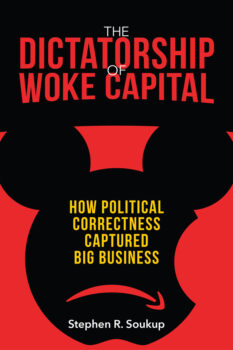
The federal government is considering new laws that could stymie the advent of “woke” corporate policy among Australia’s biggest businesses.
On Friday, Treasurer Josh Frydenberg announced consultations around possible new laws—modelled on U.S. and UK legislation—that will force shareholder proxy firms to be more transparent with their decision-making process.
Proxy firms work for major shareholders (superannuation funds and institutions) who own stakes in publicly listed companies.
The proxy firm carries out research and provide recommendations to shareholders on how to vote on matters at upcoming meetings, including environmental, social, and governance issues.
Matters such as climate change and workplace gender equality have taken centre stage in recent years.

Australia’s four major proxy advisors are CGI Glass Lewis, ISS Australia, Ownership Matters, and the Australian Council of Superannuation Investors (ACSI).
In April, CGI Glass Lewis backed a shareholder in pushing for energy firms, Woodside Petroleum and Santos, to report how they will allocate funding so the company aligns with climate change goals in the Paris Agreement.
ACSI, which represents 37 superannuation funds, last week announced it would recommend members vote against the re-election of company directors deemed to be “moving too slowly” on climate change action.
ACSI’s members, including AustralianSuper, REST, Hostplus, and HESTA, collectively own 10 percent of the ASX200, Australia’s 200 largest publicly listed companies.
Treasurer Frydenberg is pushing for proxy firms, like ACSI and CGI Glass Lewis, to provide their research and advice to companies at least five days before submitting it to shareholders.
Further, proxy firms could also be mandated to obtain an Australian Financial Services License—like financial advisors.
The government will also consider whether superannuation firms report their voting records and prove if they are exercising independent judgement on company votes.
Dean Paatsch, director at Ownership Matters, called the treasurer’s announcement a “bizarre intervention.”
“For a government supposedly committed to deregulation and the removal of red tape, this seems a curious corporate law reform priority,” he wrote in an op-ed published in The Australian.
“At the urging of corporate Australia, the Australian Securities and Investments Commission (ASIC) did a comprehensive review of proxy advisers in 2017,” he added. “It had not received a single complaint from sophisticated investors who use their services. Our firm had over 1,500 of our reports examined. Not one error was identified.”
He also noted that if there is a free and competitive market for proxy advice, the “good research will prevail over bad.”
Tim Reed, president of the Business Council of Australia, welcomed the decision saying it was a step towards greater accountability.
“The decisions made by proxy advisors have big implications on how businesses run and their ability to make returns for shareholders, so of course the system should be as transparent as possible,” he said in a statement.
“When proxy advisors provide advice, companies should have a chance to respond, and all the facts should be on the table about how decisions that impact people’s lives are made,” he added.
Stephen Soukup’s recently released book, The Dictatorship of Woke Capital: How Political Correctness Captured Big Business, details how Marxist-leftist ideas began their steady infiltration of the U.S. corporate sector in the 1970s and gradually evolved and expanded over the decades.

“Within the last 10 years or so, the new version of socially responsible investing, which goes by the initials ESG—which stands for environmental, social, and corporate governance—began to be slightly more aggressive and has grown more and more aggressive as time has gone by,” he told The Epoch Times’ “Crossroads” program.
“This has become sort of the de facto way to achieve social ends within this community of professional investors, who have moved significantly to the left over the past quarter-century,” he said.
In many cases, investors will try to steer or influence the company’s direction via pressure during shareholder meetings or threats of losing further investment in the company.
The result is directors feel compelled to adopt policies to address issues such as gender equality, Black Lives Matter, and climate change.
Last year, one of Australia’s “Big Four” banks, ANZ, vowed to end investment in thermal mines and power stations by 2030 in response to climate change.
While in 2019, retail billionaire Gerry Harvey made headlines when he said the struggles of legacy department store brands David Jones and Myers was due to boardroom executives being more concerned with quotas and “ticking the boxes” than providing an actual retail experience.





Be the first to comment